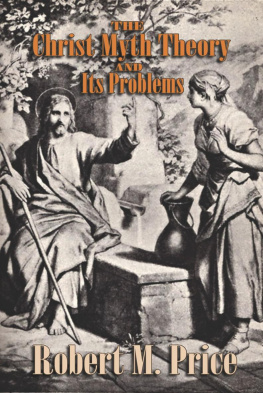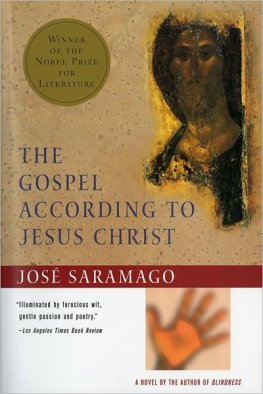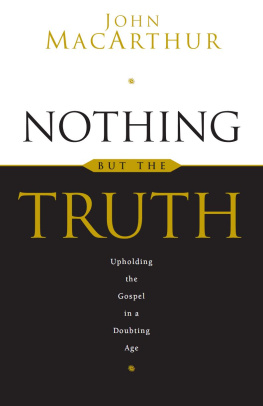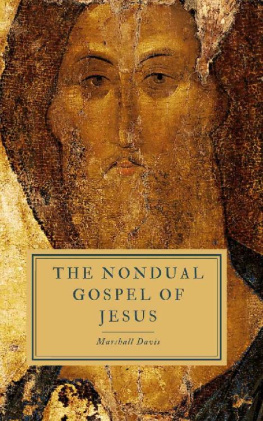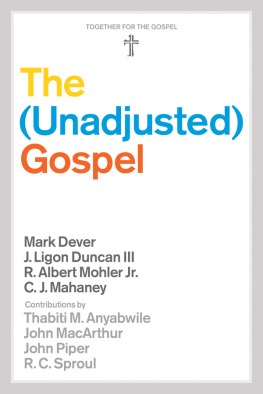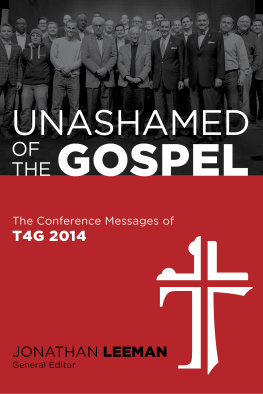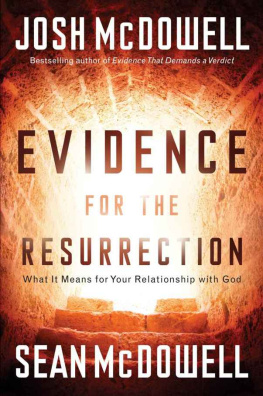
He has made everything beautiful in its time.
He has also set eternity in the hearts of men;
yet they cannot fathom what God has
done from beginning to end.
ECCLESIASTES 3:11 (EMPHASIS ADDED)


1981, 1984, 2005 by Regal Books
Published by Bethany House Publishers
11400 Hampshire Avenue South
Bloomington, Minnesota 55438
www.bethanyhouse.com
Bethany House Publishers is a division of
Baker Publishing Group, Grand Rapids, Michigan.
www.bakerpublishinggroup.com
Bethany House Publishers edition published 2014
ISBN 978-1-4412-6693-4
Previously published by Regal Books
Ebook edition originally created 2010, revision 2013
All rights reserved. No part of this publication may be reproduced, stored in a retrieval system, or transmitted in any form or by any meansfor example, electronic, photocopy, recordingwithout the prior written permission of the publisher. The only exception is brief quotations in printed reviews.
Library of Congress Cataloging-in-Publication Data is on file at the Library of Congress, Washington, DC.
All Scripture quotations, unless otherwise indicated, are taken from the Holy Bible, New International Version. Copyright 1973, 1978, 1984 by International Bible Society. Used by permission of Zondervan Publishing House. All rights reserved.
Other version used is: KJVKing James Version. Authorized King James Version.




A World Prepared
for the Gospel
The Melchizedek Factor



T HE A THENIANS
Sometime during the sixth century before Christ, in a council
chamber on Mars Hill, Athens
Tell us, Nicias, what advice has the Pythian oracle sent with you? Why has this plague come upon us? And why did our numerous sacrifices avail nothing?
Cool-eyed Nicias faced the council president squarely. The priestess declares that our city lies under a terrible curse. A certain god has placed this curse upon us because of King Megacless grievous crime of treachery against the followers of Cylon.
Yes, yes! I recall now, said another council member grimly. Megacles obtained the surrender of Cylons followers with a promise of amnesty. Then he promptly violated his own word and slew them! But god still holds this crime against us? We have atoning sacrifices to all the gods!
Not so, replied Nicias. The priestess says her god still remains unappeased.
Who could he be? the elders asked, eyeing Nicias incredulously.
That I cannot tell you, Nicias said. The oracle herself seems not to know his name. She said only that
Nicias paused, surveying the anxious faces of his colleagues. Meanwhile, the tumult of a thousand dirges echoed from the stricken city around them.
Nicias continued: We must send a ship at once to Knossos, on the island of Crete, and fetch a man named Epimenides here to Athens. The priestess assures me that he will know how to appease that offended god, thus delivering our city.
Is there no man of sufficient wisdom here in Athens? blurted an indignant elder. Must we appeal for help to a a foreigner?
If you know a man of sufficient wisdom in Athens, summon him, said Nicias. If not, let us simply do as the oracle commands.
Cold windcold as if chilled by the terror in Athensswept through the white marble council chamber on Mars Hill. One elder after another pulled his magisterial robe around his shoulders and weighed Niciass words.
Go on our behalf, my friend, said the president of the council. Fetch this Epimenides, if he will hear your plea. And if he delivers our city we will reward him.
Other members of the council concurred. The calm-voiced Nicias arose, bowed before the assembly, and left the chamber. Descending Mars Hill, he headed for the harbor at Piraeus, two leagues distant by the Bay of Phaleron. A ship stood at anchor.
Epimenides stepped briskly ashore at Piraeus, followed by Nicias. The two men set out at once for Athens, gradually recovering their land legs after the long sea journey from Crete. As they entered the already world-famous city of philosophers, signs of the plague were everywhere. But Epimenides noticed something else
Never have I seen so many gods! the Cretan exclaimed to his guide, blinking in amazement. Phalanxes of idols lined both sides of the road from Piraeus. Still other gods in the hundreds festooned a rocky escarpment called the acropolis. A later generation of Athenians would build the Parthenon there.
How many gods does Athens have? Epimenides added.
Several hundred at least! Nicias replied.
Several hundred! Epimenides exclaimed. Gods must be easier to find here than men!1
Well said! Councilman Nicias chuckled. Who knows how many proverbs men have coined about Athens, the city glutted with gods. As well haul rock to a quarry as bring another god to our city!
Nicias stopped in his tracks, pondering his own words. And yet, he began thoughtfully, the Pythian oracle declares that we Athenians have yet another god to reconcile. And you, Epimenides, are to provide the necessary liaison. Apparently, in spite of what I have said, we Athenians still do need another god!
Suddenly Nicias threw back his head and laughed. For the life of me, Epimenides, I cannot guess who this other god could be. We Athenians are the worlds foremost collectors of gods! We have already ransacked the theologies of many peoples around us, gathering every deity we can possibly transport to our city by cart or by ship!
Perhaps that is your problem, said Epimenides mysteriously.
Nicias blinked at Epimenides without comprehension. How he itched for clarification of that final remark. But something in Epimenidess demeanor hushed him. Moments later they came to an ancient marble-floored stoa near the council chamber on Mars Hill. Word of their arrival had already reached the elders of Athens. The council sat waiting.
Epimenides, we are grateful for your began the president of the assembly.
Learned elders of Athens, there is no need to thank me. Epimenides interrupted. Tomorrow at sunrise bring a flock of sheep, a band of stonemasons, and a large supply of stones and mortar to the grassy slope at the foot of this sacred rock. The sheep must all be healthy, and of different colorssome white, some black. And you must prevent them from grazing after their nights rest. They must be hungry sheep! I will now rest from my journey. Call me at dawn.
Next page




